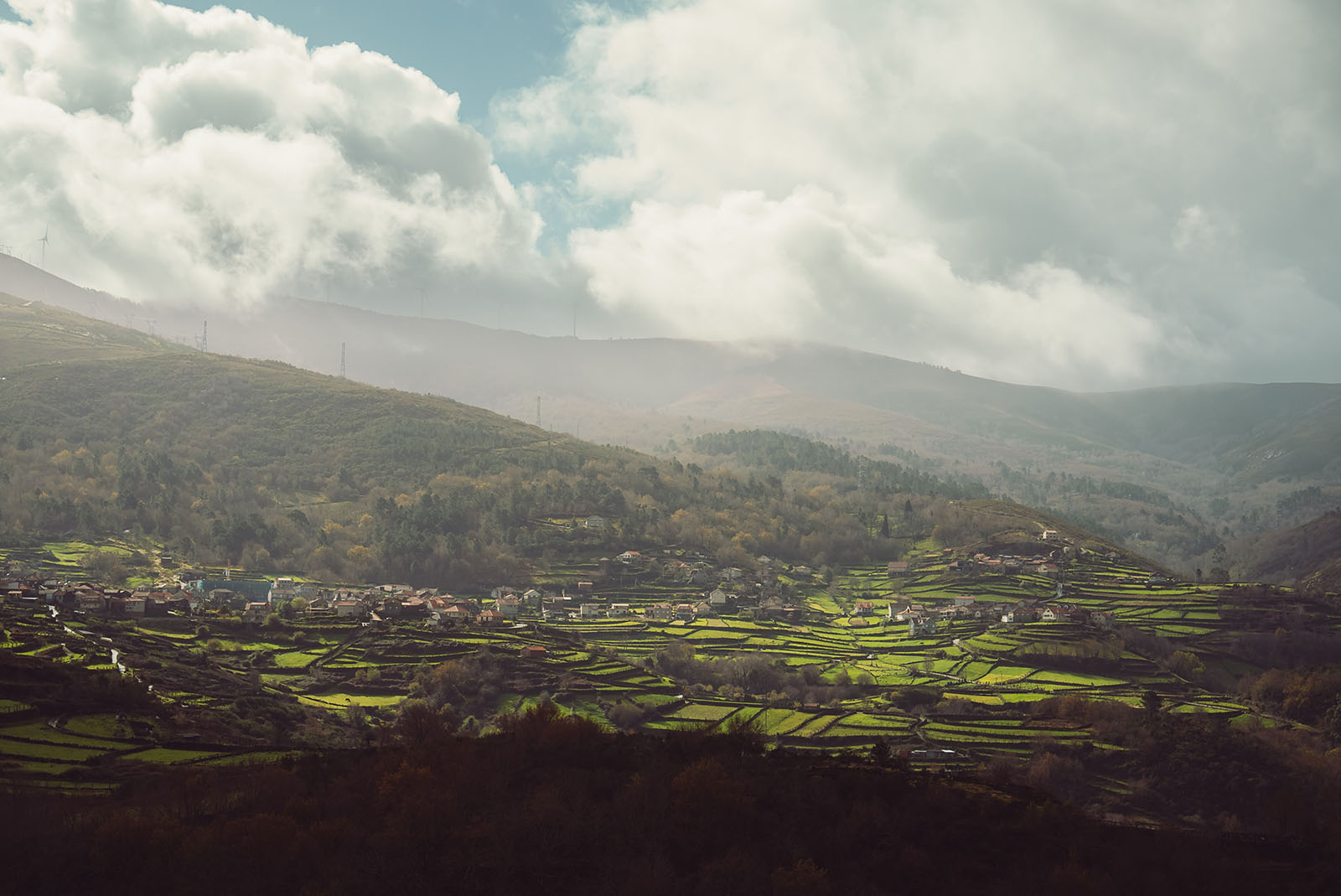

Paradamont_en


The colourful umbrellas, hung at the door of the church, announce the Parada do Monte meeting point. Inside, the tens of people gathered to listen to Father Raul’s sermon contrasted with the deserted streets of the village that Sunday morning, where there was not a soul to be seen.
The villages of Parada do Monte e Cubalhão were married in 2013 and now form a single parish. But the residents define a clear border between the two. In Parada do Monte, the energy of the youngest is like an engine that gets everything moving: they organize religious celebrations, sports activities; they like the place they call their own. In Cubalhão, the abandoned houses and elderly population reflect the emigration and exodus that has taken place. The community cafe closed over a year ago and the smokehouse is now the only establishment in the village.
Those who live here are certain: “The village of Cubalhão is evaporating”.
The pastureland at the top of the parish, the agricultural land and orchards that speckle people’s gardens with potatoes, cabbages and greens, all guarantee that there’s always food on the table. The only grocery store in the parish shut six months ago and the Melgaço market, 16 kilometres away, is the closest place to do the shopping. Neighbours with cars and vendors that come to sell their produce help to fill this gap.
The parish of Parada do Monte e Cubalhão had the highest abstention rates in Portugal in the 2021 local elections. This is because of the emigrants still registered there, despite only returning once or twice a year: “Come in August and see how many people there are”.
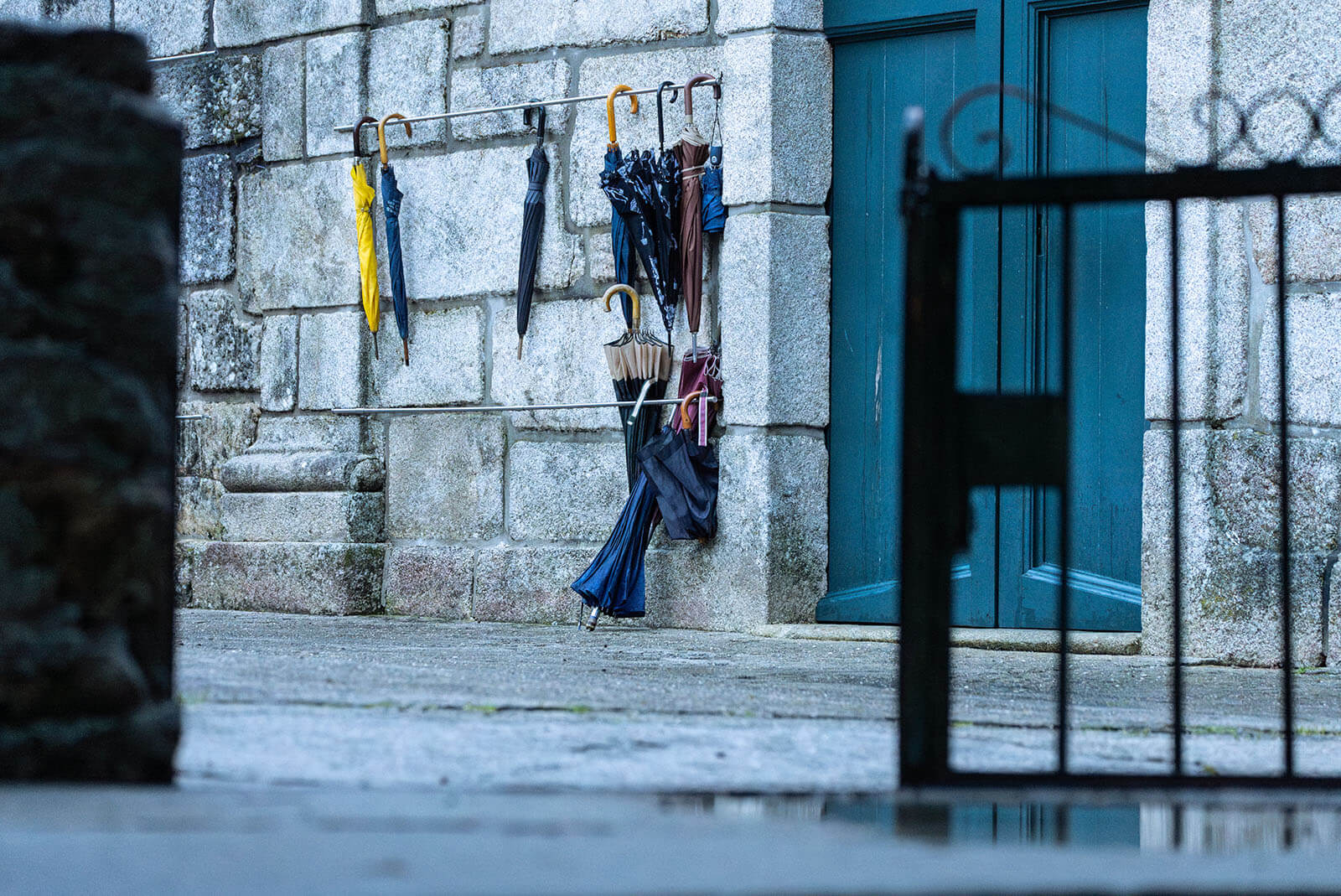


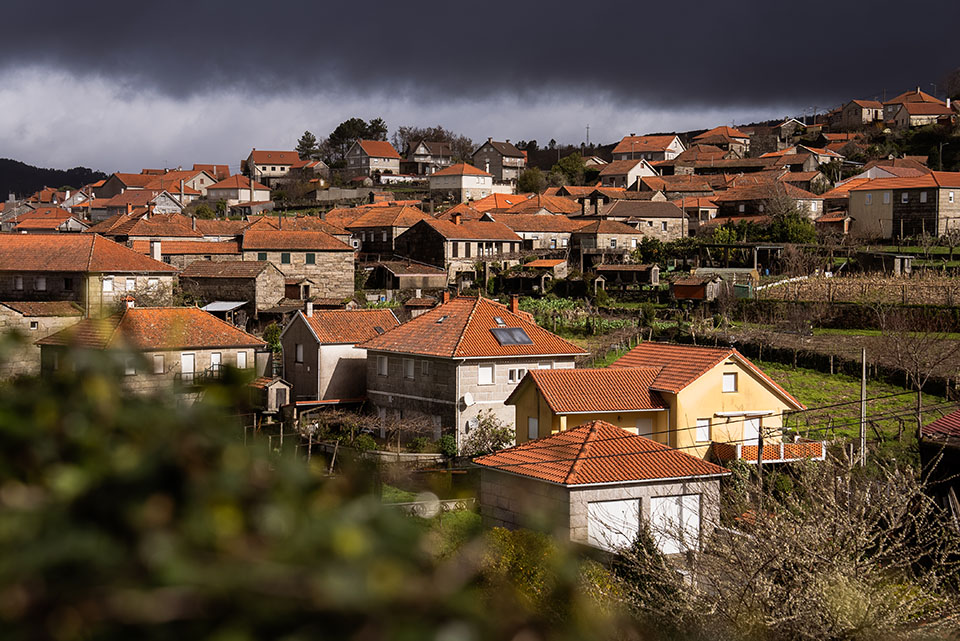
“It’s difficult to make decisions because they keep creating more parties, and electoral campaigns aren’t very clear. Forty years ago, more people were illiterate, but the political debates were long. Now, people have more schooling, we know what’s going on, but the debates are very short. It’s difficult to know what each party is proposing. But one thing is true: if attitudes don’t change, we can’t expect the results to. If things aren’t going well, we need to find someone who will do it better.”
Alexandra, 28 years old, pharmacist
70%
Civil parish with the highest levels of abstention in the 2021 local elections.
Source: Secretariat General Ministry of the Interior
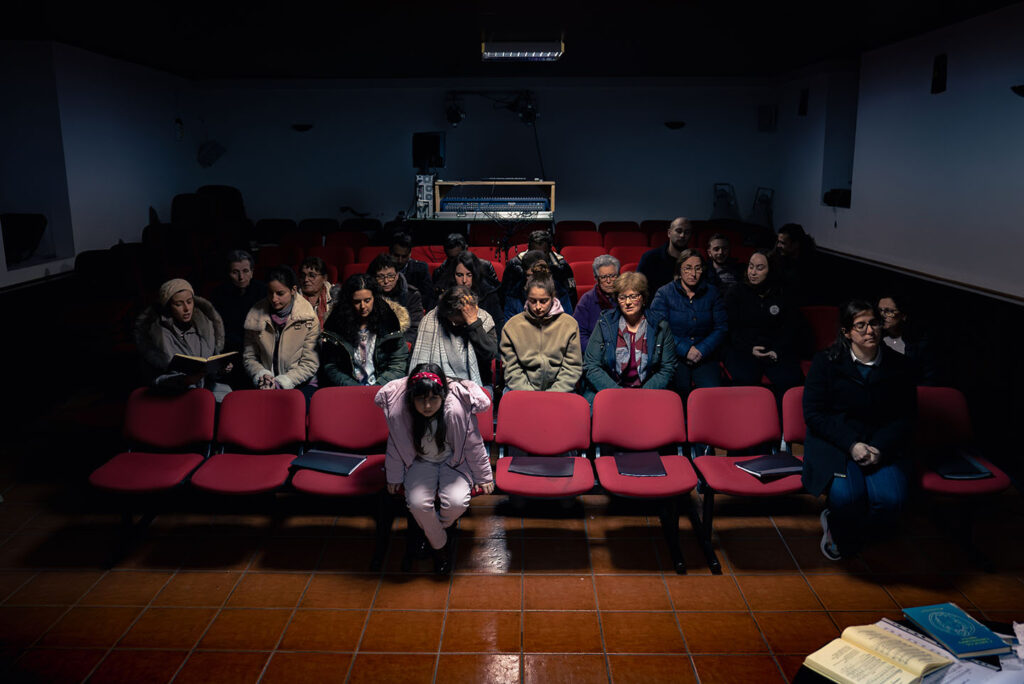
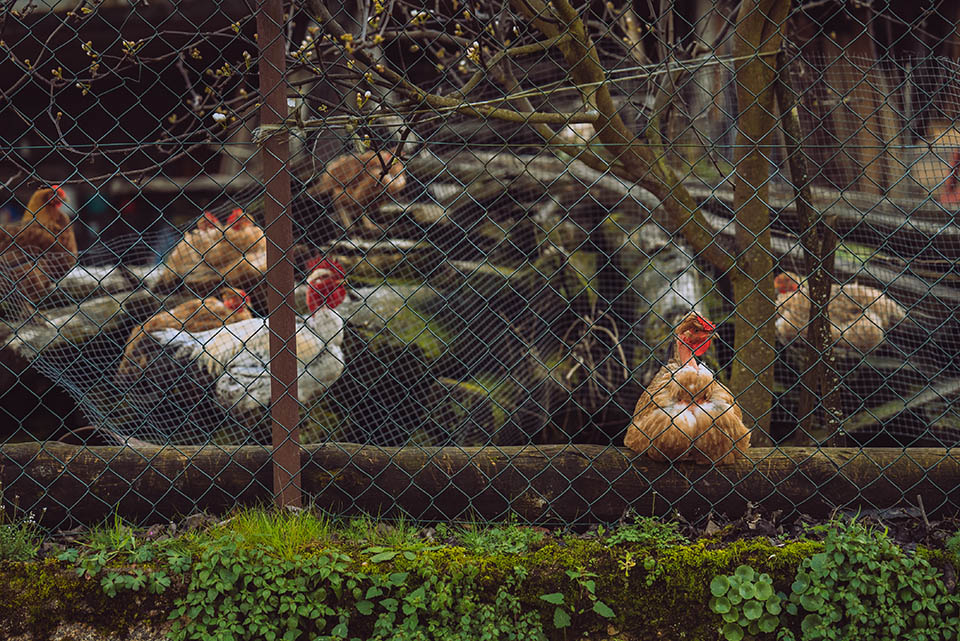
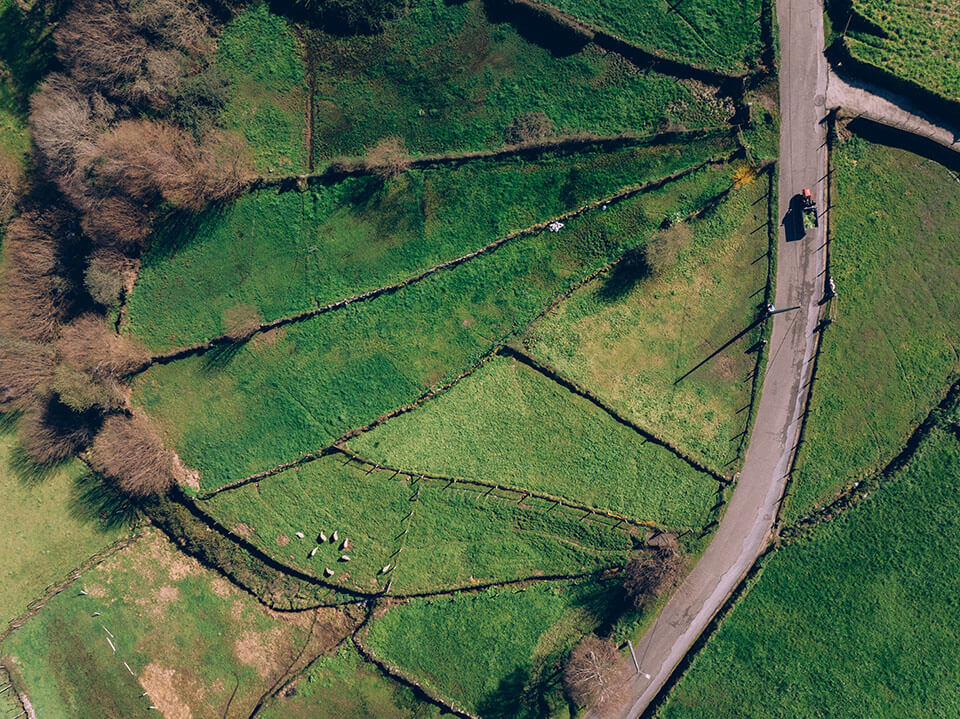

Pureza, 72 years old, retired farmer
“I usually go to vote, but this year I didn’t. They didn’t earn my vote. They fill their pockets and we have to live on 200 euros? I’m retired, but I still work—if I want to eat, I have no choice. I’ve got so many outgoings, prices keep going up. A year ago, we’d take 50 euros to town [Melgaço] and would still come back with quite a bit, but now it doesn’t get you much. We have chickens and rabbits, and we work. If not, we’d die of hunger. We lost the will to vote a long time ago. A person on minimum wage… what’s the point if it doesn’t keep you afloat?”
“I always go to vote. It’s a duty. I don’t know if I vote well, or badly, but I vote how I want to. I used to always vote for the same party, but not anymore. The parish mayor was a family member, they invited people to the party and I joined: the PSD (Social Democratic Party). Now I have turned to the Socialist Party.”
Dorinda, 76 years old, retired farmer
477
Residents in Parada do Monte e Cubalhão.
Source: Census 2021
893
People registered for 2021 local elections in Parada do Monte e Cubalhão.
Source: Secretariat General Ministry of the Interior

Joel, 31 years old, mechanical engineer
“Lots of people have emigrated. But people keep their main residence here, so the electoral registers are out of date. Fifty per cent abstention is guaranteed before any votes are cast.”
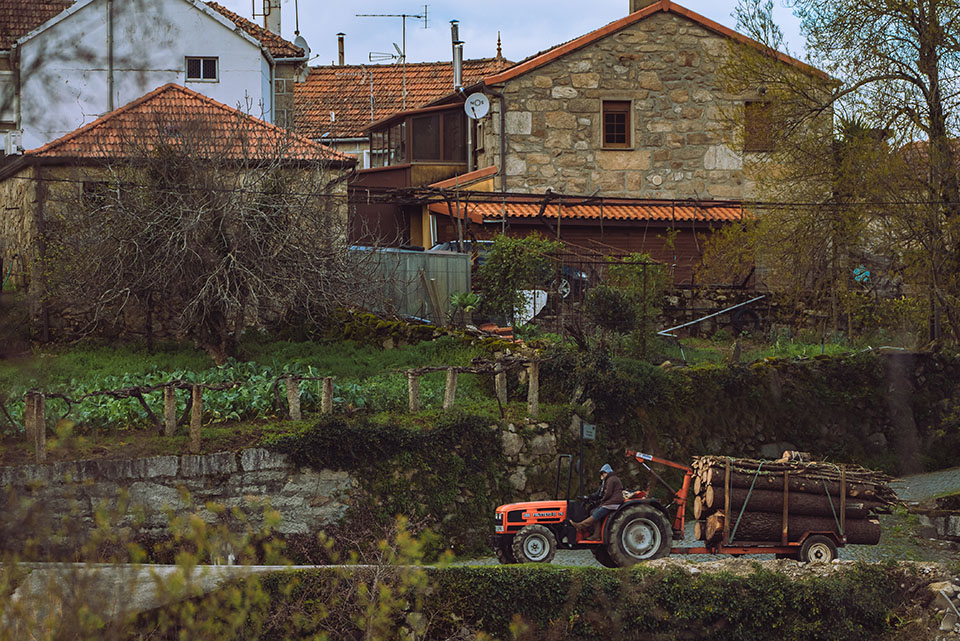
“I always vote. But few people live here, everyone is somewhere else. I have three children and six grandchildren and none of them are here with me; they are all in France and one granddaughter is in Braga. I’ve been alone for 21 years. My children come in the summer and at Christmas. Sometimes I also go there. If I were working or could speak the language, OK. But if I am to be stuck at home, I prefer to be in my house; I always have someone to talk to here. There used to be lots of young people in Cubalhão, girls and boys mixed with the older ones. It was joyful, now it’s just sad.”
Irene, 76 years old, retired farmer
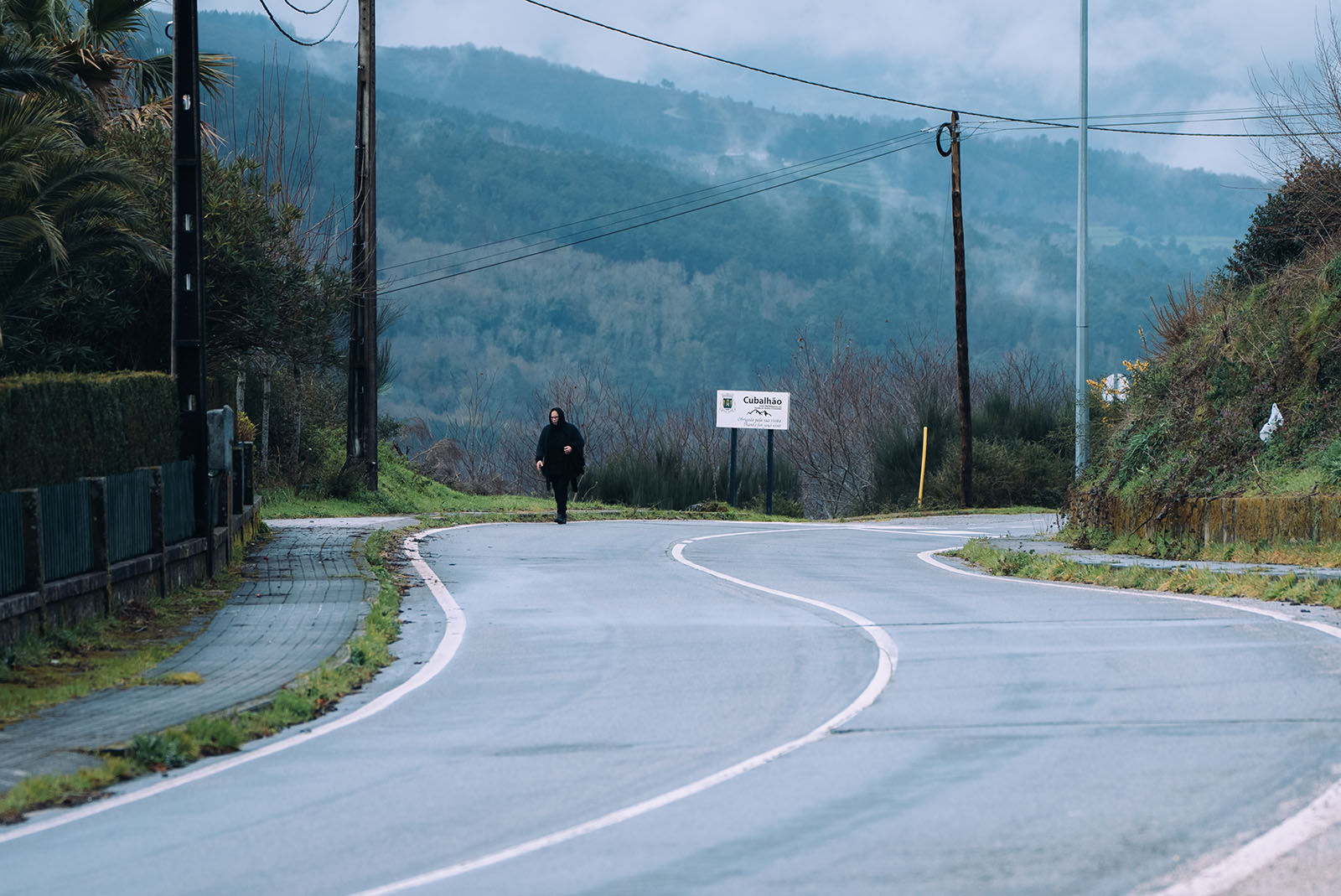

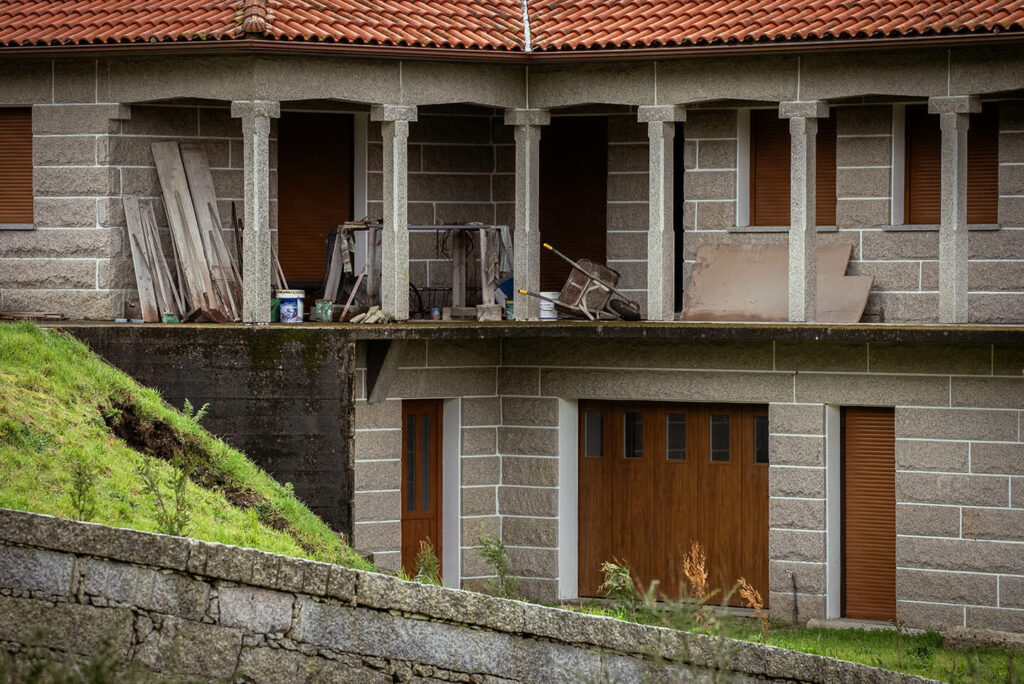
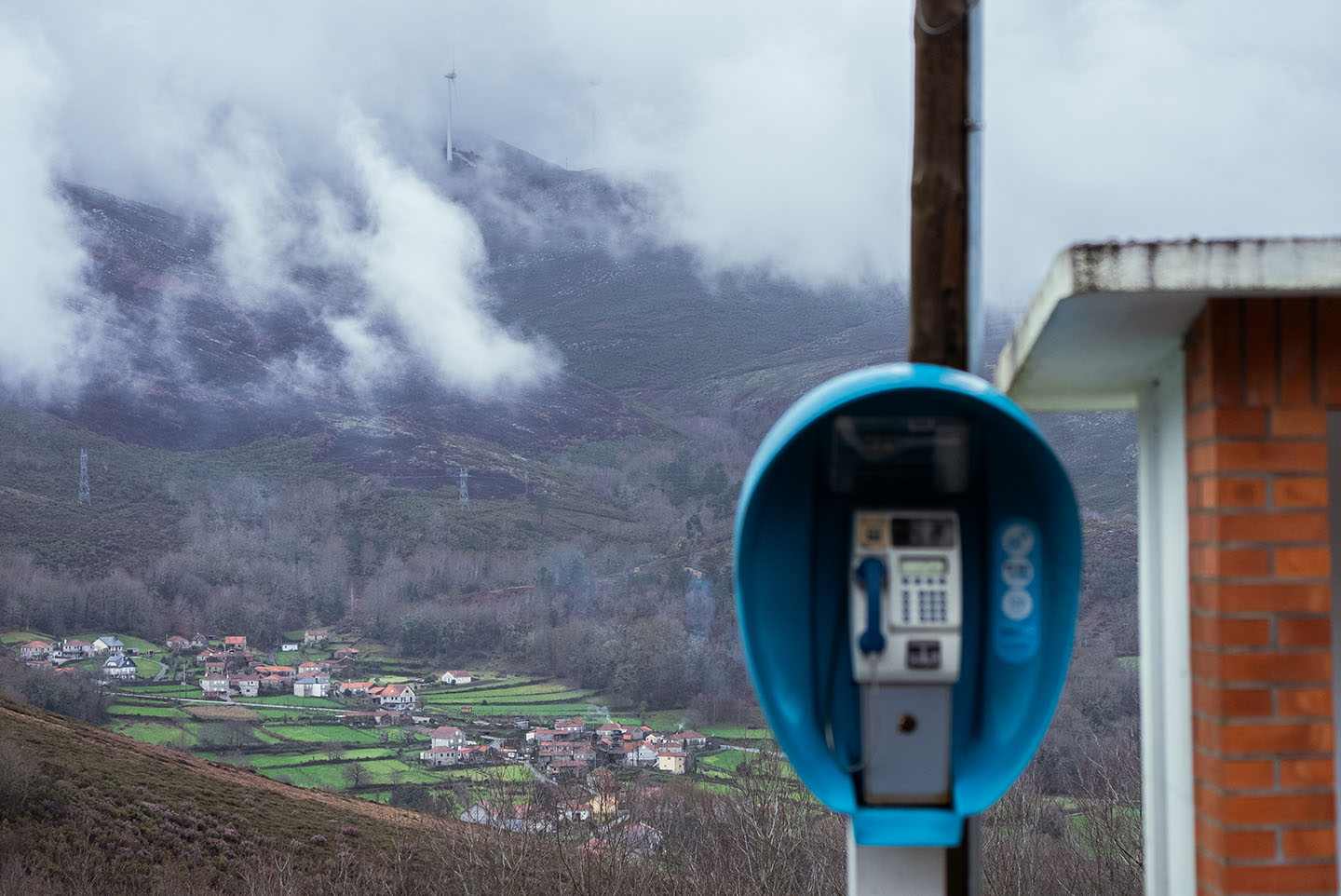
81%
Percentage of people who lived in France for at least a year and returned to Portugal between 2016 and 2021. Since the 1970s, more emigrants from this parish go to France than any other country.
Source: Census 2021


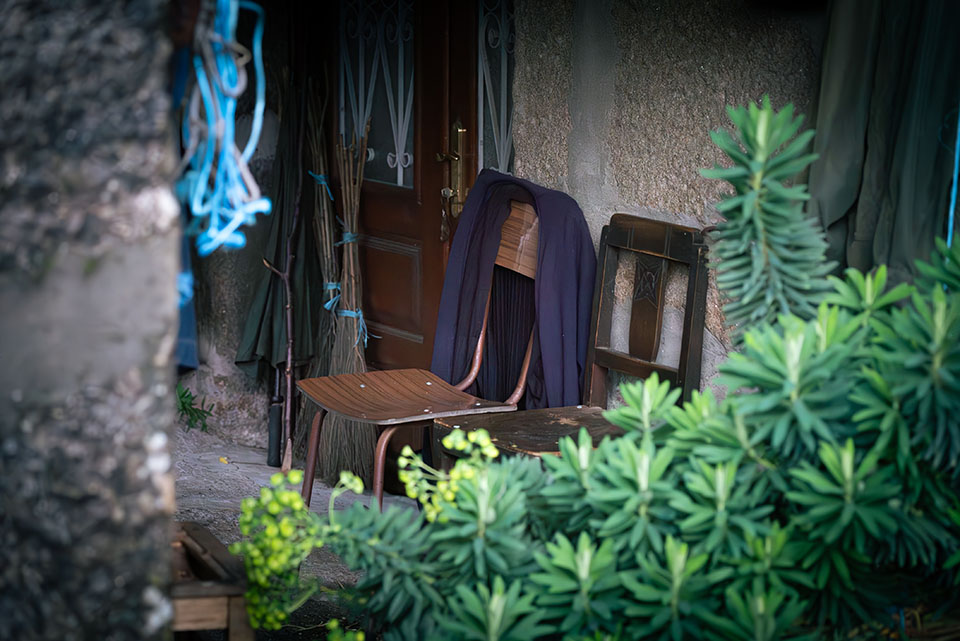
Manuel, 65 years old, bricklayer’s mate
“They said that Salazar didn’t let people emigrate. But the older ones say that lots of people went to France on foot. Later life got freer, life got better. I was born in Parada, but my life is over there, in France. You can’t earn a living here like you do there. Voting makes no difference. There are so few people now: we’re dying, the young leave, the majority are outside the country.”
“I’m not an emigrant, I’m a migrant. I work in Braga, but I am in Parada every weekend. My roots call out to me. My family, my friends since I was small are all here. The values we defend, the causes we fight for, the people who help us daily… It is totally different in a city, we were brought up belonging. Parada, deep down, is ours. Why is it ours? Because Parada doesn’t have tourism. There’s no through road; to leave here you have to turn back. It is what our ancestors built and left, we feel we’ve inherited it.”
Sandra, 39 years old, nursery school teacher

52%
The population over 65 is twice the national average (24%).
Source: Census 2021
“I think that voting is a right, so we have to exercise it. We can have doubts, be unhappy with all the parties, not like any of them, not really understand what they are saying—I think a lot of the time what happens is that the older generations have already switched off. It’s always the same old story, they don’t hear anything new, and when they go to vote, they don’t know who is who… But I think they should go anyway.”
Raquel, 30 years old, optometrist

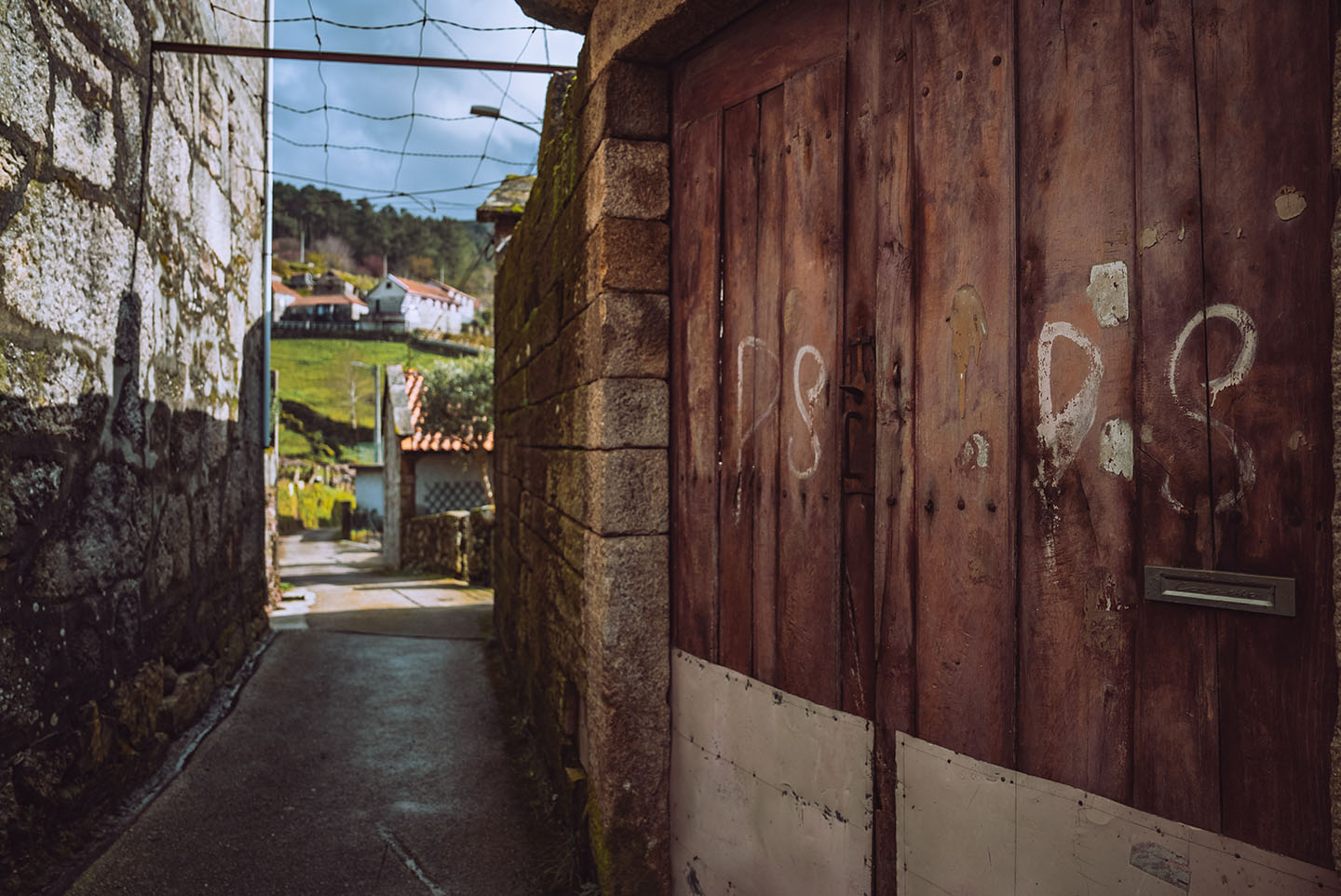


“I’ve still not decided between the Socialist Party and the Social Democratic Party. I have been listening to what they say, they promise everything and more. They all make promises. And we live on our pensions. The population is old and there’s no one here to work because the young ones have emigrated. Look at the land, this was the best there was and now…”
Celeste, 72 years old, domestic worker
81%
The highest abstention rate in Parada do Monte e Cubalhão is seen in the European elections.
Source: Secretariat General Ministry of the Interior (2019 elections)



“Europe is a distant reality, we don’t know the names or the faces. Maybe that’s why people vote less in the European elections. We know the people in the local ones, we know who the candidate is in the parliamentary ones, we can associate the faces, the names, the parties. What leaders do at local level is much closer, it has a direct impact on people’s lives, and even more so on old people’s lives.”
Alexandra, 28 years old, pharmacist

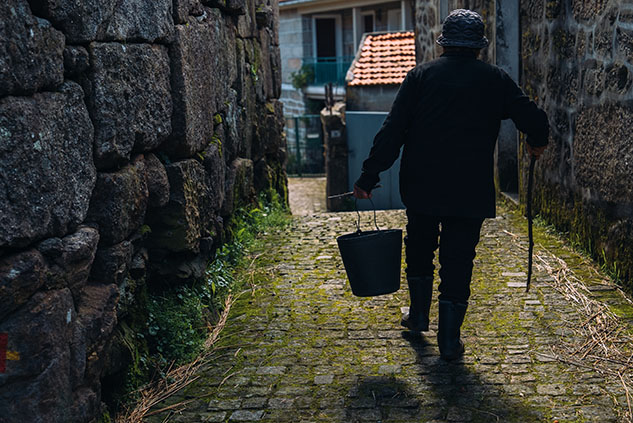
“Politics disappoints people. Voting should be compulsory, because people would vote even if they were conflicted.”
Carlos António, 66 years old, bakery assistant
1%
Parada do Monte e Cubalhão has one of the lowest unemployment rates in Portugal. There is only one unemployed person.
Source: Census 2021
26%
Construction is the biggest employer.
Source: Census 2021


“We don’t need to leave the parish to build a house. We have people trained to do everything from the foundations to the locks. We don’t have the industry to produce some products, but apart from that…”
Ricardo, parish mayor

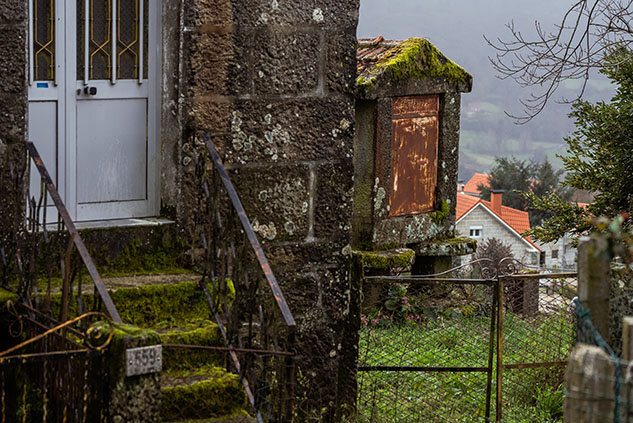
“In Parada do Monte there are lots of people, lots of young people. They build, fix roofs, they renovated the Cubalhão church. They have everything: bricklayers, carpenters, electricians, the lot. In Cubalhão it’s not like that, in three or four years there’ll be no one left. Just boarded up houses.”
Dorinda, 76 years old, retired farmer
